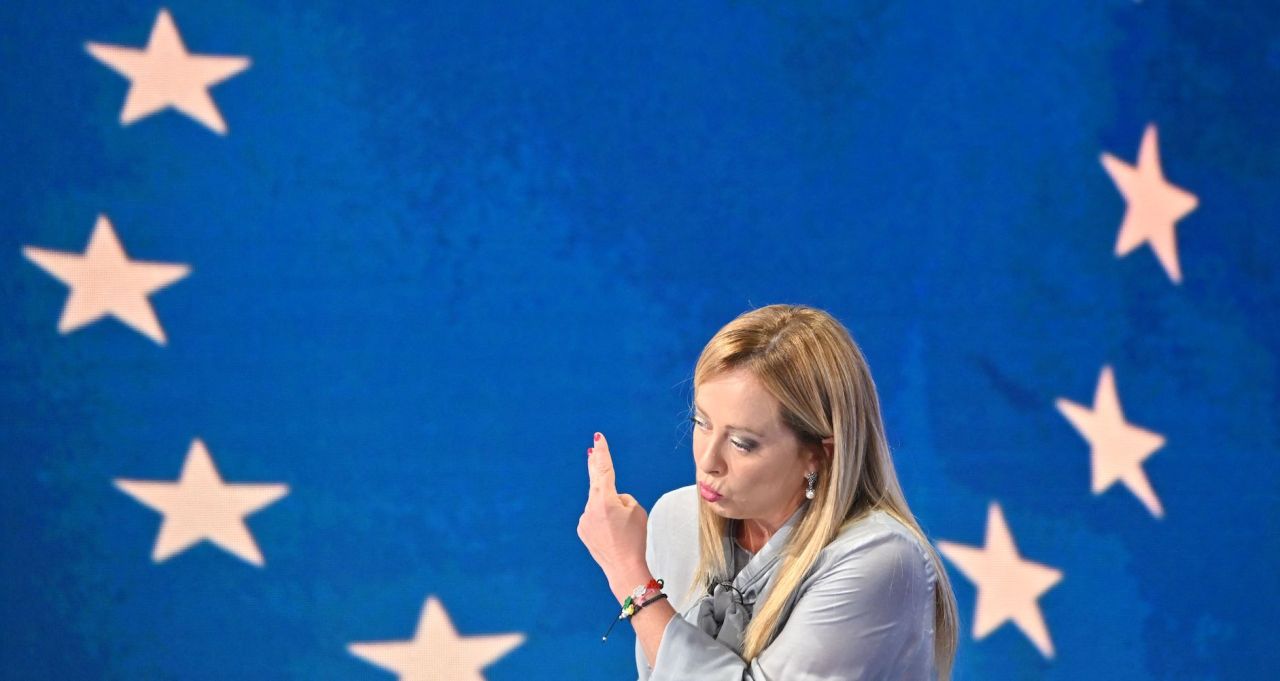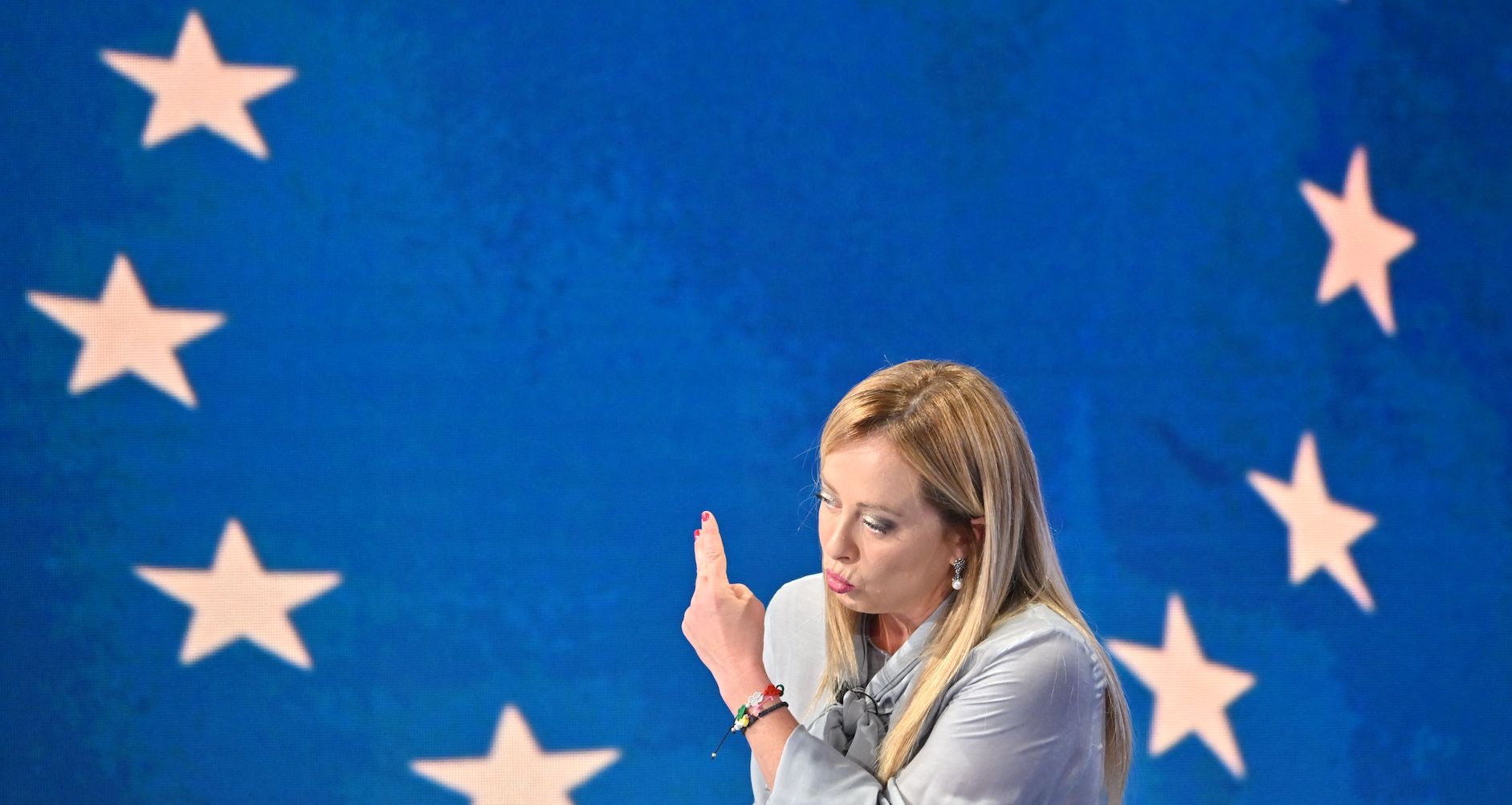Ravenna, Italy
The victory of Giorgia Meloni in Italy with a huge majority of seats in parliament has prompted the expected political indignation. It’s not just the international press, either. Yesterday, for instance, my 17-year-old son Francesco Winston told me that at his school – we live near Ravenna in the Red Romagna, a hotbed of ex-communists – all his companions were in mourning. Why, I asked? ‘They say she’s going to abolish abortion,’ he explained. Why do they believe that? I asked. ‘They’re badly informed,’ he replied. Bravo figlio mio, bravo!
Meloni would not abort an unborn child herself – she told me when I interviewed her in Rome last month – but nor would she impose her view on any other woman. She has no plans to change Italy’s 1978 law which allows abortion on demand up to 13 weeks. But she would like to give cash support to women forced to have abortions for economic reasons. ‘I’d like a woman to be free not forced to have an abortion,’ she said. And she plans to increase child benefit by 50 per cent.
Her way of doing things will be like the Chinese: softly, softly catchy monkey
Yet her opponents – plus their many friends in the Italian and international media – repeatedly insist that her party, the Brothers of Italy, has curtailed abortion in the Le Marche region which it has governed since late 2020. And this, they say, is a key piece of evidence that proves her to be far-right ergo fascist. But the obstacle to abortions in le Marche, as in Italy as a whole, is that a large majority of gynaecologists in many parts of Italy refuse to conduct abortions as conscientious objectors – nationally it’s 64.6 per cent and in Le Marche it’s 70 per cent. The only restriction that Le Marche has imposed, in common with one or two other regions where Brothers of Italy does not govern, is that the morning-after abortion pill can only be administered in hospitals.
But that has not stopped the media inside and outside Italy repeating the false claim. Le Monde yesterday for example proclaimed in a headline that Meloni ‘promised to limit access to abortion during her election campaign’.
A quick trawl through the epithets used to describe Meloni and Brothers of Italy in today’s international media coverage – both right and left – illustrates the black mood abroad in the citadels of power and influence of the West. Meloni and her party are called ‘post-fascist’, ‘far right’, ‘hard right’, or slightly more accurately ‘arch conservative’ – never conservative which is how they identify.
Meloni is an unequivocal supporter of arms to Ukraine and sanctions on Russia – much more so than France’s Emanuel Macron or Germany’s Olaf Scholz. Yes, her two coalition allies – Matteo Salvini of the Lega and Silvio Berlusconi of Forza Italia – are flaky on the issue. But they were already flaky during the previous government of Mario Draghi of which they (unlike Meloni) were part. When push came to shove, they invariably supported Draghi’s pro-arms and sanctions policy. Meloni has also made it a condition of joining a coalition with them that they continue to do so.
Her way of doing things will be like the Chinese: softly, softly catchy monkey – in a very non-confrontational, non-far right or fascistic way. She will try to persuade not bludgeon – to slowly build a consensus to get what she wants both in Italy and in Brussels. She will, as she said after her victory, try to govern by unifying Italians.
Nor can she afford a showdown with Brussels in the short term. Yes, she is a eurosceptic who once called for Italy to leave the euro. And she believes the EU should do ‘less better’, and be a confederation of states, a Europe des Patries, not a federal superstate.
But Brussels has allotted by far the largest share of its gigantic Covid Recovery Fund to Italy – €200 billion worth of loans and grants – to be paid in stages and dependent on Italy meeting a series of conditions. That is a huge sum of existential importance to Italy and the first payments have only just started arriving. Italy’s economy has been in more or less permanent recession since 2011 and its public debt is now an astronomical 150 per cent of GDP.
So Meloni will enter office as a financial prisoner of the EU. She cannot threaten Europe in the way so many analysts imagine. But nor would she want to from a position of weakness – unless forced to by severe economic crisis or war. Expect her though to be a far less strident figure than today’s often-hysterical reaction suggests. That appears to be what the markets think, too, which are seemingly untroubled by all the doomsday media talk surrounding her election – quite unlike their reaction to Liz Truss taking over in Britain.








Comments